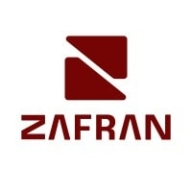


Check Point CloudGuard CNAPP and Tenable Nessus are prominent players in the cloud security and vulnerability assessment categories, respectively. Based on feature set, Check Point CloudGuard CNAPP holds a slight upper hand due to its extensive capabilities for managing complex cloud environments.
Features: Check Point CloudGuard CNAPP provides cloud security posture management, compliance checks, threat intelligence, and auto-remediation. It offers a unified interface for managing AWS, Azure, and Google clouds and includes sandboxing and zero-day threat protection. Tenable Nessus focuses on vulnerability assessments with a comprehensive database, excels in vulnerability reporting, and provides clear remediation steps.
Room for Improvement: Check Point CloudGuard CNAPP could improve dashboard customization, pricing model, vendor support, compliance checks, and integration. Tenable Nessus needs better reporting features, built-in cloud integrations, and a more flexible and affordable pricing model.
Ease of Deployment and Customer Service: Check Point CloudGuard CNAPP is typically deployed in public cloud environments, offering flexibility for single-pane management, though basic support could improve. Tenable Nessus is primarily on-premises, with good technical support, but could enhance cloud platform integration and support services.
Pricing and ROI: Check Point CloudGuard CNAPP is perceived as costly with pricing based on cloud asset size, impacting ROI positively by streamlining cloud security. Tenable Nessus is comparatively affordable, providing effective vulnerability management and a solid ROI for small to mid-sized organizations.



Zafran Security integrates with existing security tools to identify and mitigate vulnerabilities effectively, proving that most critical vulnerabilities are not exploitable, optimizing threat management.
Zafran Security introduces an innovative operating model for managing security threats and vulnerabilities. By leveraging the threat exposure management platform, it pinpoints and prioritizes exploitable vulnerabilities, reducing risk through immediate remediation. This platform enhances your hybrid cloud security by normalizing vulnerability signals and integrating specific IT context data, such as CVE runtime presence and internet asset reachability, into its analysis. No longer reliant on patch windows, Zafran Security allows you to manage risks actively.
What are the key features of Zafran Security?
What benefits can users expect from Zafran Security?
In industries where security is paramount, such as finance and healthcare, Zafran Security provides invaluable protection by ensuring that only exploitable vulnerabilities are addressed. It allows entities to maintain robust security measures while allocating resources efficiently, fitting seamlessly into existing security strategies.
Check Point CloudGuard CNAPP is a cloud-native application protection platform designed to secure your cloud environments and applications. By combining CSPM, CWPP, CSNS, and WAF capabilities, it provides a comprehensive solution to protect your cloud environment from a wide range of threats.
CloudGuard CNAPP delivers end-to-end cloud security, including workload protection, vulnerability management, and identity management, all while maintaining continuous compliance. It uses advanced AI to detect and prevent threats, offering protection for containers, serverless applications, and APIs. CloudGuard CNAPP also emphasizes simplifying security management, integrating directly with cloud platforms like AWS, Azure, and GCP.
CloudGuard CNAPP provides customers with more context to drive actionable security and smarter prevention, from code-to-cloud, across the application lifecycle. More Context Means Actionable Security, Smarter Prevention. The primary components are:
What are the key features of CloudGuard CNAPP?
What are the key benefits to consider?
Check Point CloudGuard CNAPP simplifies cloud security management with integrated protection and automation.
Tenable Nessus provides an efficient vulnerability management system with swift deployment and comprehensive scanning capabilities, making it an ideal choice for organizations seeking to enhance their security posture through effective threat detection and mitigation strategies.
Renowned for its top-tier vulnerability detection, Tenable Nessus offers a robust platform that integrates effortlessly across systems, enhancing threat management through automation, real-time monitoring, and customizable scanning options. Its broad asset coverage, including network devices and applications, coupled with ease of deployment, positions it as a go-to option for risk assessment and compliance. Organizations value its extensive reporting features and database, although they suggest enhancements in reporting formats and false positive detection. A more intuitive interface, improved cloud support, and competitive pricing models are sought after to cater to evolving enterprise needs.
What are the key features of Tenable Nessus?In industries such as finance, healthcare, and tech, Tenable Nessus is implemented for scanning internal and external networks, identifying risks, and ensuring data protection compliance. Organizations conduct regular scans to detect security vulnerabilities in servers and databases, leveraging its capabilities to strengthen their security frameworks while managing cloud infrastructures and enterprise networks efficiently.
We monitor all Vulnerability Management reviews to prevent fraudulent reviews and keep review quality high. We do not post reviews by company employees or direct competitors. We validate each review for authenticity via cross-reference with LinkedIn, and personal follow-up with the reviewer when necessary.